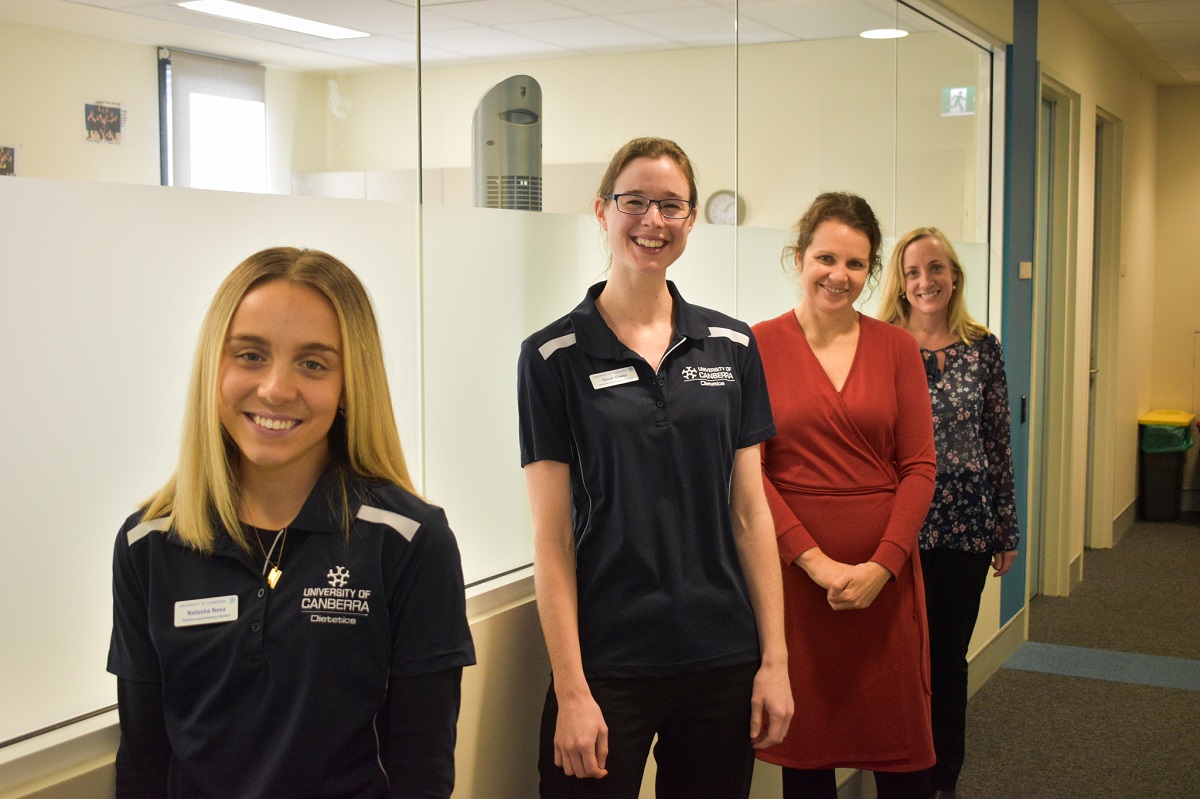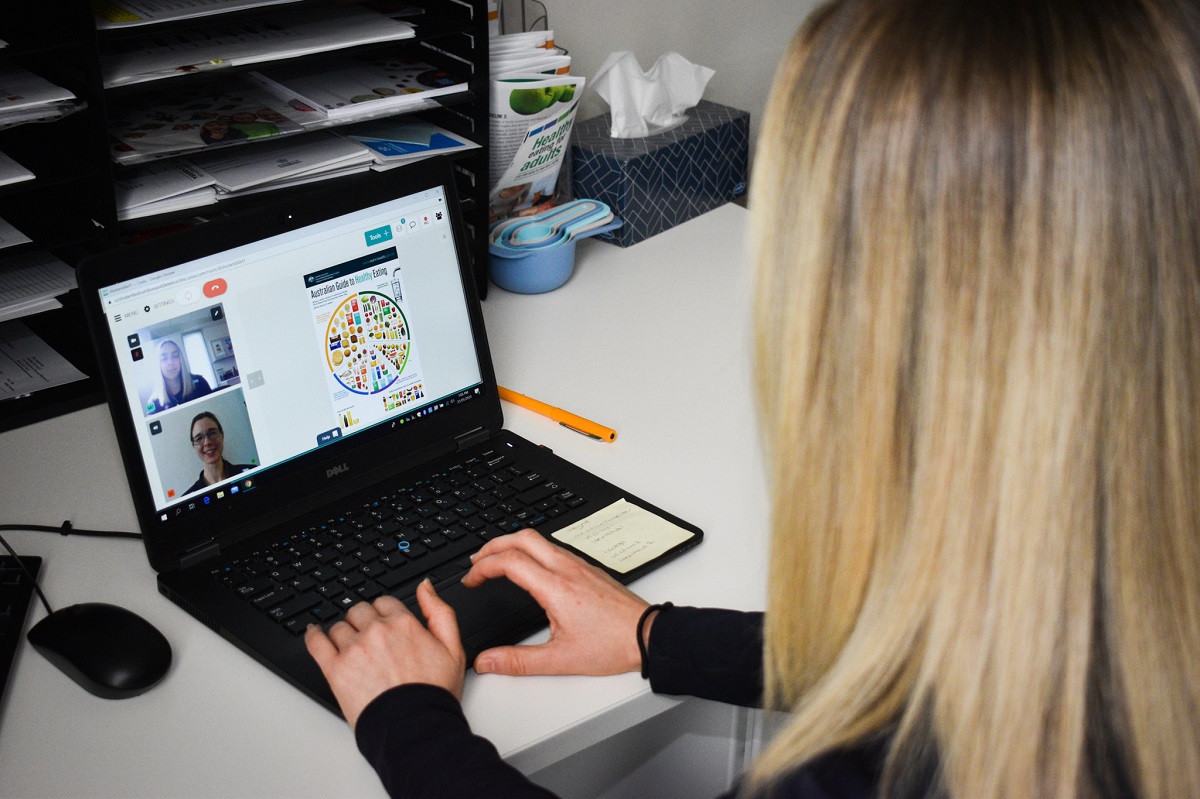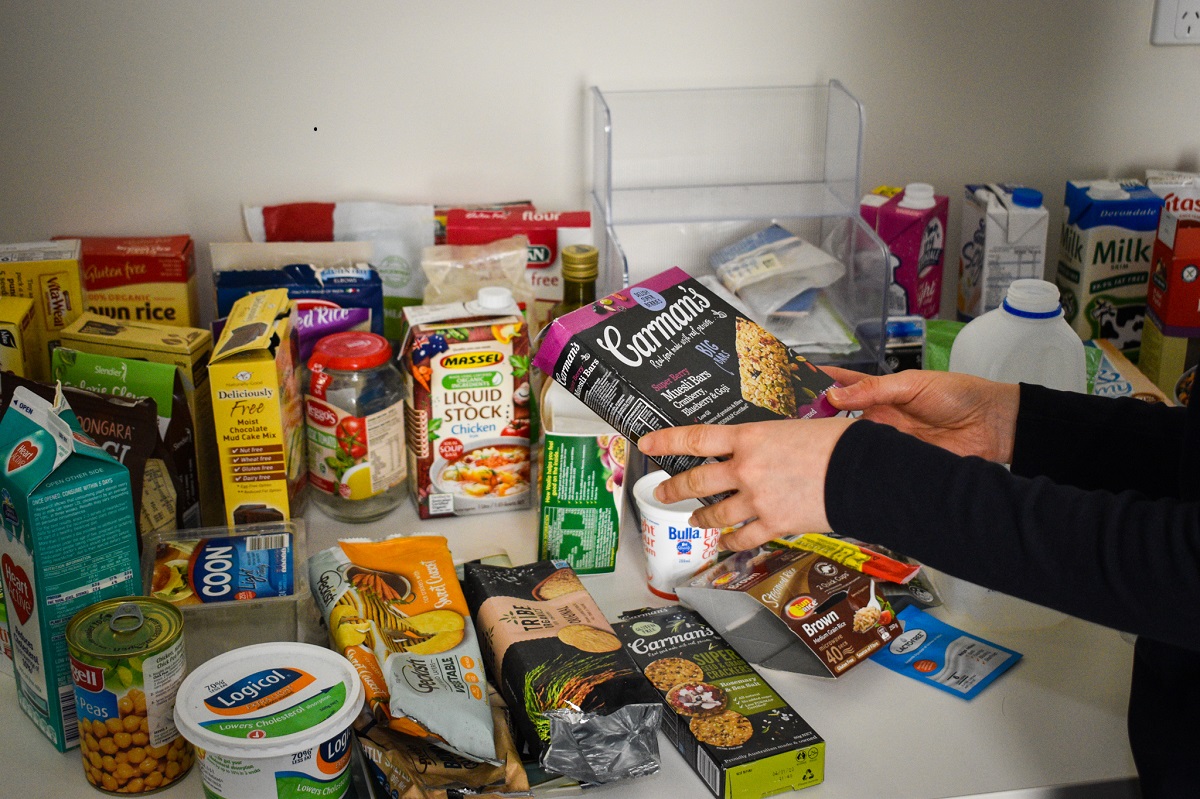Sport, Health & Wellbeing
Eating your way to good health
“I need to socially distance from my fridge.”
Perhaps you’ve seen a variation of that theme on social media in the past couple months … maybe you’ve posted something like that yourself.
Either way, you’re not alone – many people have been building co-dependent relationships with their fridges while observing pandemic-necessitated isolation and distancing.
“Our appetite, mood – and ultimately, our food intake – can be impacted by several factors,” says Linda Smillie, Dietetics Clinical Educator at the University of Canberra’s Faculty of Health student-led clinics.
At the UC Nutrition and Dietetics clinic, some clients have reported an increase in emotional eating in response to a corresponding spike in stress, anxiety and loneliness at this time.
Linda and her students have also seen patients dealing with the inverse scenario – they’ve reported that both food intake and body weight have dropped in this time.
“It can be an issue because unplanned weight loss is likely to lower your general wellbeing and quality of life, and can also increase your risk of serious health issues such as hip fractures, poor wound healing and malnutrition,” says Linda.
“Good nutrition is crucial for health, particularly at times when our immune system needs to be at its best – in that case, you need nutrients from a whole range of healthy foods to fight an infection.”
The impact of the current time aside, Linda and the students at the clinic also have patients who come to them to help deal with irritable bowel syndrome (IBS), high cholesterol, overweight, allergies, and cancer, to name a few.
The students also advise patients who are on vegetarian and vegan diets, and those who just want to make sure that they are following a healthy eating plan.

“Dietitians provide up-to-date, evidence-based nutrition information, translating scientific health and nutrition information into practical advice,” Linda says.
On average, the students conduct five to six half-day clinics per week.
A clinical educator coordinates the skill development activities of students, promotes peer-assisted learning and supports students to provide best practice dietetic services. From time to time, the students also prepare and deliver group nutrition education on topics such as diabetes, nutrition and Parkinson’s disease, and nutrition and cancer.
According to Associate Professor of Dietetics and Nutrition Dr Rachel Bacon, the UC Health clinics are also a valuable way to connect with and serve the community.
“In the past, students used to only do their clinical placements in a hospital setting, but now, they spend half their time in an outpatient clinic,” she says. “Working at the clinics better prepares them to help people to change their eating behaviours – while still being prepared for hospital work. I was just talking to a colleague in a local hospital and he was very impressed with how well-prepared some of our graduates were.”
“The placements are an invaluable part of our development – they really help us grow as both people and professionals,” says second-year Master of Nutrition and Dietetics student Natasha Ness.
Because of the distancing needed at the moment, “going to the clinic” has taken on new meaning nowadays, and a visit to the UC Health Clinics is as simple as dialling in.

“We’ve had great feedback from our telehealth clients, who seem to be enjoying that they can have their appointments in the comfort of their own homes,” says Natasha. “And telehealth makes our services more accessible to more people as well – forinstance, there is no problem for one of our clients experiencing agoraphobia, who is physically unable to come into the clinic.
When it comes to the Nutrition and Dietetics clinic, the clinical educators and students have discovered that telehealth has another distinct advantage over an in-person appointment – they can easily be taken on a virtual tour of their patient’s fridge and pantry, for assessment and advice, or to help teach them how to read nutritional labels.

The one-on-one appointments allow personalised advice for each patient. Because food is such a personal thing, a one-size-fits-all approach isn’t as effective as individualised advice.
“Food can be linked to so much emotion and people can have very complicated relationships with it – so our work is very much focused on working together with our clients, to create goals that suit them,” says Sarah Ewels, also in her second year of studying for a Master of Nutrition and Dietetics.
Ultimately, it’s the preventive power of dietetics and proper nutrition that inspired Sarah and many of her cohort to pursue this path.
“Proper nutrition can prevent so many chronic illnesses and improve the quality of life for those who already have them,” she says. “Also, I just love working with people – and this field really is all about people.”
To make an appointment at UC Nutrition and Dietetics clinic, call 6201 5843. Click here for more information.
Words by Suzanne Lazaroo, photos by Madeleine Wood